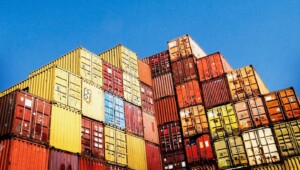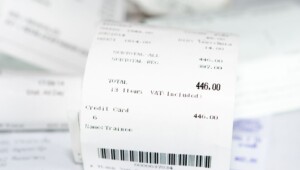As of 1 July 2023, Spain has assumed the rotating Presidency of the Council of the EU, with an ambitious six-month programme that includes advancing several key tax files.
The Spanish Presidency aims to expedite corporate, indirect, and customs taxation files to reduce the burden on individuals and companies and combat tax evasion and avoidance. The Business in Europe: Framework on Business Taxation (BEFIT) is one of the primary focus areas, with a proposal expected to be published on 12 September 2023.
Spain also plans to resume work on two other significant tax files. Firstly, an agreement on the Directive to prevent the misuse of shell entities (UNSHELL) is anticipated for 9 November. Secondly, a political agreement on the VAT in the Digital Age (ViDA) package is tentatively scheduled for the 8 December meeting.
Additionally, progress reports on the recently published adjusted package for the next generation of own resources and the proposal for a Directive on a new framework on withholding taxes (FASTER) are expected at the same meeting.
Spain is part of a trio presidency, which includes Belgium and Hungary. Over their collective 18-month programme, the trio emphasises closing the VAT gap by modernising and simplifying the common VAT system and transposing the OECD framework on reforming international taxation into EU law.
Exporters Face New UK Obligations

From the end of October 2023, exporters to the UK will face new obligations due to Brexit, according to the ASD Group. The UK, which left the European Union on 1 January 2021, has introduced sanitary and phytosanitary (SPS) restrictions at its borders to control imports of animals, plants, and their derived products. These restrictions will be tightened from the end of October 2023.
The SPS checks verify that sanitary and phytosanitary products imported from France comply with all the hygienic rules imposed by the UK. The inspection takes place in three stages: documentary control, identity control, and physical control. In the event of non-conformity, the goods will be immobilised pending rectification, if possible. Otherwise, the goods will be returned to their country of origin or destroyed on the spot.
From 31 October 2023, live animals, animal products and “high priority” and “regulated” plants and plant products must be pre-notified to the UK inspection authorities. A sanitary and phytosanitary certificate must also accompany goods.
The UK’s Border Target Operating Model (BTOM) is a detailed plan to guide border management following the UK’s exit from the European Union due to Brexit. The BTOM procedure will be phased in from the end of October 2023.
UK Retains EU’s CE Seal Post-Brexit

Despite Brexit, the UK has decided to retain the European Union’s CE safety seal, bowing to pressure from industry and manufacturers. The CE seal, which stands for “Conformité Européenne”, indicates that a product meets the requirements of all applicable EU directives regarding safety, health protection, and environmental protection.
The CE symbol was to be replaced by a new British safety seal called UKCA (UK Conformity Assessed) for products sold in the UK from the end of 2024. However, companies complained about significant additional costs and urged the government to abandon its plans.
According to Kevin Hollinrake, Secretary of State for Economic Affairs, extending CE marking across the UK allows companies to focus their time and money on job creation and economic growth. The move marks another U-turn in Britain’s trade and economic policy since Brexit, with companies now eagerly awaiting an announcement on how London plans to introduce customs controls on imports.
EU Approves Germany’s VAT E-Invoicing

The Council of the European Union has authorised Germany to introduce a special measure that deviates from Articles 218 and 232 of Directive 2006/112/EC on the common value-added tax (VAT) system. Effective 1 January 2025, this measure mandates electronic invoicing for all transactions between taxable persons established in Germany.
The special measure is intended as a first step in implementing a transaction-based reporting system, which is expected to help combat VAT fraud and evasion. It will enable tax authorities to verify the consistency between the VAT declared and the VAT due in a timely and automatic manner, thereby facilitating the early detection and checking of discrepancies.
The measure is expected to be manageable for taxable persons, as electronic invoicing is already common practice in many sectors of the German economy and is mandatory in public procurement. It is also expected to benefit taxable persons by digitising processes, reducing administrative burdens, and providing long-term savings by eliminating paper invoices.
The measure will be in effect until 31 December 2027 or until a directive amending Articles 218 and 232 of Directive 2006/112/EC is adopted, which would allow Member States to implement mandatory electronic invoicing and eliminate the need for further special measures to derogate from Directive 2006/112/EC.
France Delays Mandatory E-Invoicing
The French government has announced a delay in implementing mandatory electronic invoicing, initially scheduled for 1 July 2024. The move is part of an ambitious reform to reduce administrative burdens, increase productivity, improve the fight against fraud, and enhance real-time understanding of business economics.
The reform, which has been in close collaboration with stakeholders since 2021, is expected to result in an annual saving of €4.5bn for small and medium-sized enterprises. It also aims to modernise the relationship between the tax administration and businesses.
The decision to postpone the implementation was made following regular consultations with professional federations, companies, and software publishers throughout the first half of 2023. The new implementation date will be determined during the adoption of the 2024 finance law to ensure a smooth transition to electronic invoicing for the 4 million businesses involved.
The French government is continuing to work to provide businesses with maximum guarantees for a successful transition to electronic invoicing, in line with their expectations. The registration service for partner dematerialisation platforms, launched by the General Directorate of Public Finances on 2 May 2023, is already processing the first applications received.
France Ends Automatic Receipt Printing

From 1 August 2023, automatic receipt printing will cease in France, marking a significant shift in the country’s fight against waste and harmful substances. The change, enacted under Law No. 2020-105 of 10 February 2020, aims to combat the environmental and health risks associated with the 30 billion receipts printed annually.
While consumers can still request printed receipts, retailers must inform them of this change via clear signage at payment points. Certain receipts, such as those for durable goods and cancelled or credited bank card transactions, will continue to be printed automatically.
The move towards digital receipts, or e-tickets, is already underway, with options including SMS, email, banking app messages, or QR codes. However, under the General Data Protection Regulation (GDPR), consumers must consent to data collection. Suppose a consumer does not consent, and a receipt is not printed. In that case, the only record of the purchase will be the transaction amount displayed at the checkout.
DHL Group: Revenue falls by 12% in the first half of the year

Deutsche Post DHL Group (DPDHL) has published its financial results for the first half 2023. Despite ongoing global challenges, the company delivered a solid performance, with some business units outperforming others.
In the first half of 2023, the group’s revenue decreased by 12% to €41.012 billion, while EBIT declined by 25.7% to €3.331 billion. Group profit decreased by 32.6% to 1,889 billion euros.
The individual business units showed different results. Express recorded a 7.2% decline in revenue to 12,403 billion euros. Global Forwarding, Freight significantly decreased turnover by 33.5% to 10,323 billion euros. On the other hand, Supply Chain posted revenue growth of 5.8% to €8.339 billion. eCommerce remained virtually unchanged, with revenue of €3.013 billion. In comparison, Post & Parcel Germany posted a slight revenue decline of 0.2% to €8.194 billion.
Particularly noteworthy was the performance of the Supply Chain division, which recorded EBIT growth of 11.1% to €499m, supported by contract extensions and a growing eCommerce business.
In contrast, the Post & Parcel Germany division reported a 49.2% decline in EBIT to €123 million due to higher costs from inflation and regulatory conditions.
Despite the challenges, DPDHL Group remains optimistic. It continues its efforts to accelerate the digital transformation in all divisions and achieve net-zero emissions logistics by 2050.
Christmas 2023: Germans plan to spend less

According to a nationwide survey, about one in five Germans (21 per cent) plan to spend less money on Christmas presents this year than last year. Only 3 per cent of respondents plan to spend more on gifts. This is the result of the “Christmas Shopping Report 2023”, for which eBay Ads surveyed 10,000 consumers in Germany with the support of the opinion research company Civey.
Given shrinking Christmas budgets, retailers, and brands need to boost Christmas business with targeted advertising measures this year. Especially on marketplaces with a lot of competition, such as eBay, it is recommended to increase the visibility of their offers with marketing tools from mid-September.
Interestingly, consumer sentiment is significantly better among young female shoppers between 18 and 29 and families with children. 11 per cent of young female shoppers and 6 per cent of families with children plan to spend more on gifts this year.
The survey also shows that demand in various product categories increases noticeably from mid-September. This underlines the need for retailers to prepare for the Christmas season and highlight their offers.
Arnaud Valion Gueutal, Director Central Europe Advertising at eBay Ads, comments on the survey results: Competition for female customers will intensify further in 2023. Suppose you still want to be successful in this year’s Christmas shopping season. In that case, you should stand out from the competition early on and use targeted advertising to increase the visibility of your offers to land on shoppers’ wish lists.”







